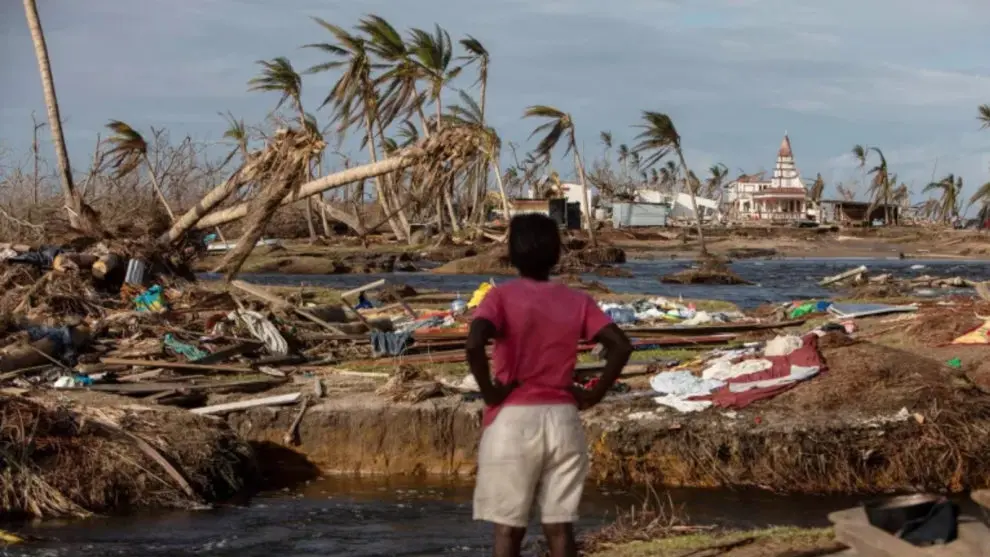
In recent years, natural disasters and extreme weather events have been occurring at alarming rates. This past summer was particularly worrisome in the U.S. – nearly one-third of Americans experienced a weather disaster during the summer months, and over 60 percent experienced a multi-day heatwave. In California, wildfires ravaged the state, burning millions of acres. The Pacific Northwest saw record-breaking heat that killed hundreds. On the other side of the country, Hurricane Ida brought winds and flooding, destroying homes.
The US is not alone in experiencing these natural disasters. Around the world, extreme weather from hurricanes and floods to droughts are impacting all regions of the world, all while the COVID-19 pandemic continues. We know that climate change is exacerbating these extreme weather events. In a recent report, the Intergovernmental Panel on Climate Change warned that some of the impacts of climate change and humans’ role in it are irreversible. It is therefore not surprising that in response to the secondary impacts of the COVID-19 pandemic and increasingly devastating natural disasters, people will be forced to leave their homes. And who will be most impacted? Children.
Climate change could spark the migration of 216 million people by 2050 if the problems it causes go unaddressed. The United States’ neighbors are already facing danger and food insecurity due to climate change, forcing them to flee. Climate displacement carries serious risks, especially for children, who will suffer impacts to their health and nutrition that can last a lifetime. They can also become vulnerable to trafficking and sexual abuse, and lose access to education. Unfortunately, there is no framework of protection for climate displaced people, which will increasingly include children as they make up half of the world’s forcibly displaced people. First Focus Campaign for Children signed a letter calling for the government to create climate displacement protections that will ultimately protect millions of children.
It is becoming increasingly clear that we can no longer ignore children when we talk about climate change. It is inherently a kids’ issue, and we can’t wait until it’s too late to consider the impact it will have on them. First Focus on Children has called on the government to specifically consider children in its climate change policy efforts, which include:
⚫. Providing protections for climate-displaced people.
⚫. Investing in programs that prevent climate change and subsequent health outcomes, including through U.S. foreign assistance, such as adapting water, sanitation, hygiene, health, and education systems for children so they can better adapt to climate change
⚫. Promote environmental justice for marginalized communities, including internationally,
⚫. Include children and youth in key climate-related convenings and decision-making. Kids are already speaking out and are angry about government inaction regarding climate change. As these issues affect their present and their future, the urgency of their voices should be heard in all future climate-related decision-making.
For more information on how to improve the environmental health of children, please refer to our Children’s Agenda: Promises We Must Make to Our Children.